
Screenshot of California Governor Gavin Newsom during redistricting press conference on August, 14, 2025.
This story is part one of a two-part series detailing how California’s Proposition 50 will impact Latinos.
In just a few days, California voters will start to receive ballots for the Nov. 4 special election that will redraw the state’s congressional districts. The rare mid-decade redistricting is hailed by supporters as a necessary move to even out the playing field for the 2026 midterm election. Opponents call the campaign a power grab.
Governor Gavin Newsom launched the Prop 50 campaign in August in response to Texas Governor Greg Abbott announcing his state would be redrawing its maps, effectively eliminating five Democrat-held seats. Abbott’s decision came after pressure from President Donald Trump to ensure Republicans keep their majority in Congress come 2026. Nicknamed the Election Rigging Response Act, California’s campaign is a defiant and controversial move.
“This was not the fight we chose. It's the fight, though, that we must have,” said Newsom during a virtual press conference on Wednesday. “What we did is something I don't think they expected, and that is, we decided to fight fire with fire. We decided to use not just our moral authority, but our formal authority and we went through a very detailed and comprehensive and transparent process.”
What is redistricting?
Typically, California does redistricting every ten years to reflect census data and ensure equal representation. Depending on how district lines are drawn and what demographics are grouped together, redistricting can also be manipulated to favor one party or group.
In 2008 and 2010, California voted to leave the redistricting process up to a non-partisan independent commission, making the special election an especially controversial move. If Prop 50 passes, nearly every congressional district in the state would change, and five districts currently held by Republicans would be reshaped to favor Democratic candidates. A majority of voters would have to vote “yes” on the proposition for it to pass.
The five districts set to be drastically changed are:
District 1 (Largest cities in the district are Chico, Redding and Yuba City). Currently represented by Republican Doug LaMalfa;
District 3 (Includes the counties of El Dorado and Sacramento). Currently represented by Republican Kevin Kiley;
District 22 (Covers most of Kings County as well as parts of Tulare and Kern counties). Currently represented by Republican David Valadao;
District 41 (Covers most of the Coachella Valley, Palm Springs and Corona, among others). Currently represented by Republican Ken Calvert;
District 48 (Includes areas like Temecula, Murrieta and parts of Escondido). Currently represented by Republican Darrel Issa
State lawmakers worked together to draw and pass the new maps with a two-thirds majority in the State Assembly. By redrawing districts and shuffling voters around, it is expected that Democrats would win seats in these five districts.

The cluster of congressional districts in L.A. County would be redrawn if Proposition 50 passes during the Nov. 4 special election. (Screenshot from the California State Assembly Committee on Elections website)
How did we get here?
The fight over these seats began in August, after Abbott announced the state would redraw its maps, creating five more Republican-held seats. Since Republicans currently hold a slim majority in Congress, President Trump pressured Abbott to go through with the redistricting in order to ensure Congress continues to be Republican-led in 2026.
“Prop 50 is about so much more than just redistricting,” said Sen. Alex Padilla on Wednesday, adding “It's about reining in the lawlessness of the Trump administration, the cruelty of the administration.”
Padilla continued, “and it's a tax, especially on California, and it would not be here if it wasn't for Texas saying, ‘yes, sir,’ when the president (requested) five more Republican seats in the state of Texas.”
Unlike the effort in Texas, California’s redistricting move is reversible. After the 2030 election, the maps will go back to being drawn by the independent commission.
“Prop 50 is fighting fire with fire and saying ‘enough is enough,” said Sen. Caroline Menjivar (D-San Fernando) during the press conference on Wednesday. She added, “Ya basta. Suficiente with putting a target on hardworking Californians, enough is enough.”
Lines drawn
As of Sept. 30, supporters of Prop 50 have raised roughly $120 million, according to the California Secretary of State’s website. The biggest donors in support are the Fund for Policy Reform ($10 million), a nonprofit lobbying organization led by billionaire George Soros; MoveOn.org, ($6.9 million), an organizing group focused on progressive advocacy; and the California Teachers Association ($3 million).
The opposition has raised about $77 million, with the largest donation so far ($42 million) made by the Congressional Leadership Fund, a super PAC dedicated to electing Republicans to the House of Representatives. Charles Munger Jr., a Republican megadonor, has personally contributed $33 million to the No on Prop 50 campaign.
Labor and advocacy groups including the California Nurses Association, California Faculty Association and NAACP have stated their support for the redistricting campaign. Political big names like Rep. Alexandira Ocasio Cortez, former President Barack Obama and Sen. Bernie Sanders have also shown support for Prop 50.
On the other side, former Governor of California Arnold Schwarzenegger has publicly opposed the campaign. Former Republican House Speaker Kevin McCarthy has also taken on a big presence in the No on Prop 50 campaign.
“While much of the focus on Proposition 50 has been on its partisan political impacts, community leaders and organizations from across California are raising concerns about the controversial ballot measure’s harmful direct effects on ethnic communities—a casualty of the partisan power grab,” reads a news release sent out by the official No on Prop 50 campaign. It continues, “this approach undermines the transparent process of the Citizens Redistricting Commission and fragments neighborhoods that share common interests, diluting their collective voice in Congress.
The League of Women Voters, a nonpartisan organization, has stated it will not take a position on Prop 50, despite supporting the independent commission and generally opposing mid-cycle redistricting. The League put out a statement in August saying “the people most affected by district maps, especially communities of color who are often underrepresented, should be the ones to decide if those maps are fair.”
Latinos could have a big impact
One of the bigger complaints against the new maps is the way in which they will split up many communities of color throughout the state - many Latino communities, specifically, will be shuffled around. Roughly 29% of California’s voters are Latino, making it a powerful voting bloc.
A poll conducted by the UC Berkeley Institute of Governmental Studies in August found that 48% of Latinos said they would vote yes on Prop 50 and 20% were still undecided.
“If you're undecided, think about this: your neighbors are getting kidnapped just because of their color,” said Menjivar. “Your parents came here to give you a better future, and a better future was not to be behind bars or detained as an American citizen. A better future meant access to higher education, a better future meant that your business loans were coming down … A better future is a yes on Prop 50 to say, ‘we're standing up and making sure we get that better future.’”
While many Latinos will have their districts changed if the maps are passed, supporters of Prop 50 believe it's a necessary price to pay to fight against the current administration.
Menjivar clarified that, for example, while Congressman Robert Garcia’s seat is being moved around, it will be replaced and remain a Latino-held seat in L.A., providing essential representation for the folks who live there.
This representation will “ensure that our voices are actually being heard in Washington, D.C., that we're not bending the knee to a tyrant,” said Menjivar, adding, “that's the bottom line here … if you do not want to continue living like this, if you want your representatives to actually be able to do their job in Washington D.C., Prop 50 is the move for you.”

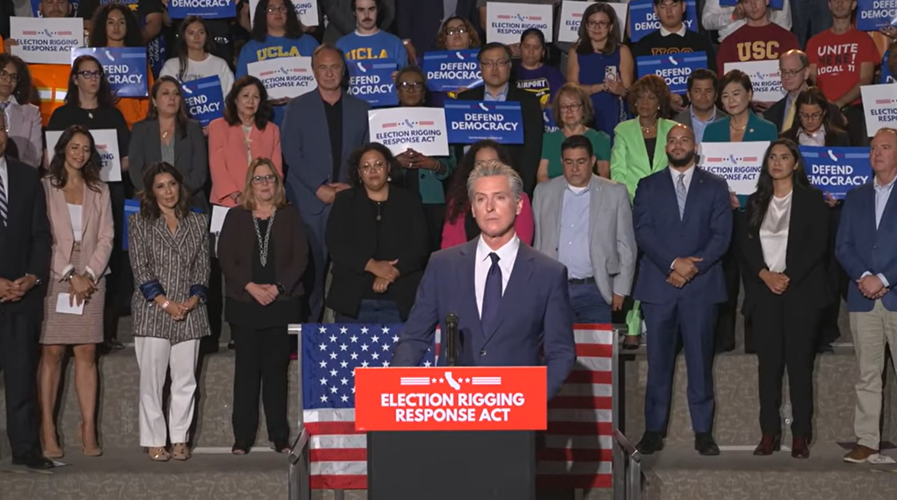
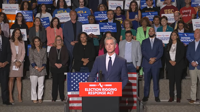
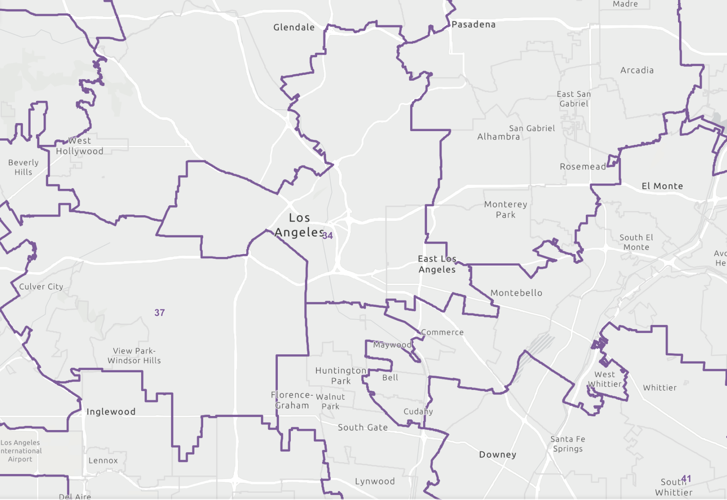
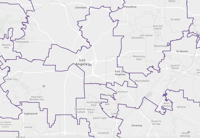

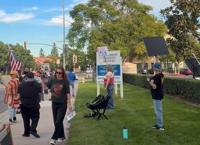






(0) comments
Welcome to the discussion.
Log In
Keep it Clean. Please avoid obscene, vulgar, lewd, racist or sexually-oriented language.
PLEASE TURN OFF YOUR CAPS LOCK.
Don't Threaten. Threats of harming another person will not be tolerated.
Be Truthful. Don't knowingly lie about anyone or anything.
Be Nice. No racism, sexism or any sort of -ism that is degrading to another person.
Be Proactive. Use the 'Report' link on each comment to let us know of abusive posts.
Share with Us. We'd love to hear eyewitness accounts, the history behind an article.